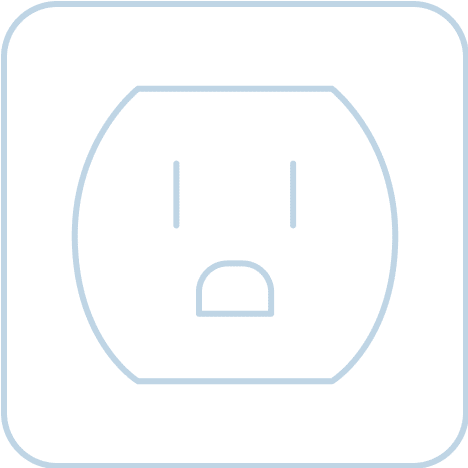Batteries are recycled in a multistep metallurgical process. Batteries are shredded and sorted into requisite components. There are many metals, plastics, and secondary materials that are recovered including zinc and iron.


Keep reading to find out how you could even potentially get paid to recycle your old batteries and have them taken out of your hands (and off your mind) as soon as tomorrow.

Depending on the battery type, here are specific guidelines to recycle them properly.
But don’t worry — for lithium iron phosphate (LiFePO₄) batteries, we at Battery Recyclers of America provide white-glove services to palletize your batteries that adhere to federal DOT safety regulations.
For more details, we conveniently offer a comprehensive step-by-step guide to packaging your batteries here. For other types of batteries, we also provide detailed answers on our FAQ page regarding how to package different battery types.
If you’re unsure whether you have lithium iron phosphate batteries, feel free to contact us, and one of our associates will help you identify them.


Don’t stress yourself about recycling your batteries. We can reach you anywhere you are and always comply with all laws and regulations.

We can handle all your battery recycling needs no matter how many batteries you have. We can take them off your hands as soon as tomorrow.

The “Battery Act” (The Mercury-Containing and Rechargeable Battery Management Act of 1996) is a federal law that was created to enhance the process of recycling battery waste. Recycling your spent lithium iron phosphate batteries is a part of this law, so it is important to understand the rules surrounding the process.
Before you decide to recycle your battery waste, it is important to get an idea of the battery recycling laws in your state. Since each state has its own laws, please go to BatteryCoucil.org, which will provide you with the information you need on the battery recycling laws in your state.
Battery Recyclers of America provides expert battery recycling solutions that are certified and proven to follow both the federal law and your state’s laws. If you have spent batteries that you need to recycle, contact us today to utilize our next-day pickup services, and join in on the positive contribution to make sure the materials in your batteries can be of further use.

In all states except for California, you can safely dispose of household batteries, such as AA, AAA, C, and D. However, lithium iron phosphate batteries must be recycled.
To reduce harmful lead waste, the EPA (Environmental Protection Agency) created the Universal Waste Regulation which has been successful at establishing an improved recycling and disposal process for all spent batteries.
Most recycling entities do not adhere to the EPA’s Universal Waste Regulation and outsource their disposal, which is much cheaper than complying with the EPA’s eco-friendly regulation. When you work with us, we can guarantee that you will be using the absolute best recycling program that abides by these rules. Together, we can reduce the amount of dangerous chemicals that are released into the environment and protect our planet.
Whenever you recycle with us, we provide you with a recycling certificate as proof that all deposited materials have been appropriately recycled and the processes are compliant with EPA regulations.
Depending on the type of batteries you recycle with us, you may even qualify for compensation for doing your part to protect our planet. That’s the green way!
To learn more about our EPA-approved battery disposal process, click here.

An important step when recycling your batteries is identifying them. Misidentification of batteries during recycling can lead to dangerous shipping and recycling incidents.
Lithium iron phosphate batteries are a variation of a lithium ion battery. These rechargeable batteries are also known as an LFP or LiPO battery, and they are a popular choice for electric vehicles and backup power. The cathode is comprised of LiFePO₄, while the anode is comprised of a carbon electrode with a metallic current collector grid.
While they do have a lower energy density than some other rechargeable batteries, LFP batteries offer an excellent lifetime supply, good power density, and are a safe choice for battery use. When they need to be recycled, specialized recycling techniques must be used to ensure a mix-up of battery chemistries doesn’t occur.
If you’re still unsure whether or not you have a lithium iron phosphate battery, feel free to send us the model number or manufacturer, and we’ll be more than happy to assist you.

Once a battery is put to use, the chemicals inside the battery have to break apart for the reaction to begin. As soon as the electrons are released, they flow from the anode to the cathode. In regular batteries, this process can only happen once.
However, chargers that are used for LFP batteries solve this issue by reversing the ion flow. As they flow back from the cathode to the anode, the battery’s power is restored and can be used once again.
Lithium iron phosphate batteries also provide excellent chemical stability, which considerably improves the safety of using the battery. Even in situations where they are overheated or short-circuited, the oxygen atoms are extremely hard to remove. They are much harder to ignite than other lithium-ion batteries and are resilient in high temperatures.
Lithium iron phosphate batteries can last up to 10 years. However, despite their long lifespan, the power of this battery will begin to decline. When your LFP batteries can’t do their job anymore, contact Battery Recyclers of America to ensure safe handling and recycling of the materials in the battery. By doing so, you will be contributing to a healthier environment and further productive use of the materials the battery contained.